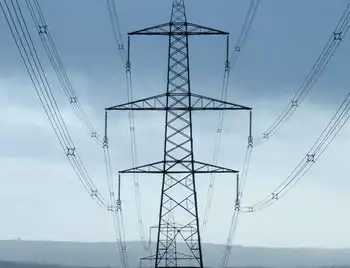Plattsburgh to move ahead with efficiency initiatives
By The Press Republican
Protective Relay Training - Basic
Our customized live online or in‑person group training can be delivered to your staff at your location.

- Live Online
- 12 hours Instructor-led
- Group Training Available
He gets calls about cats stuck in trees, about potholes and people making noise in the middle of the night.
While the mayor says he takes all of these calls seriously, he is befuddled about the complaints he doesn't hear.
"Gas is nearly $4 a gallon, and nobody complains or tries to do anything about it," Kasprzak said recently.
"I can't believe that. Where is the outrage?"
Aside from just voicing his concern, the mayor and the city are stepping up to actually do something about the high costs of energy.
The city is unleashing a whole new wave of energy-saving programs that are designed not only to save money, but make the city more green.
"Hopefully, all of the energy savings we realize will help the bottom line for all ratepayers and allow us to pursue green initiatives that are long overdue for this city."
The energy-saving programs stem from the statewide Independent Energy Efficiency Program (IEEP) that serves many of the municipal electric utilities in the state including Plattsburgh, Lake Placid and Rouses Point.
Tupper Lake will soon be joining.
The program was established in 2001 to implement ways of saving energy use and costs. It is funded through a small surcharge on each municipal ratepayer's monthly bill of about $2 per month.
Each municipality receives a portion of the fund each year to sponsor energy-saving programs.
Refrigerator replacements, improved lighting and added insulation are just some of the dozens of programs that have been offered.
The city has up to about $1.2 million in its IEEP fund but has only spent about $200,000 to $250,000 each year on changes.
The mayor, who took office in 2007, is puzzled by that.
"I don't know why more was not spent, but we are going to change that," he said.
"This is the ratepayer's money, and it is designed to save on energy, and we are going make sure that the ratepayers benefit from this."
In addition to offering residents several rebate programs, the city will be making significant changes to many of its buildings.
"It cost us $8,000 a month to heat and light the Crete (Memorial Civic Center)," Kasprzak said.
"Can you believe that? We've got to get that down."
About $350,000 of the IEEP money is slated to go toward a new energy-efficient heating system for the Crete.
Another $250,000 is earmarked for energy-efficient lighting in the city, and about $200,000 will go toward a residential insulation program.
The city will also replace a natural-gas generator at the police station for a more efficient model and the rotted doors at the fire station.
All told, the city will spend just about all of the $1.2 million in the IEEP fund on energy-saving programs.
"The fund gets replenished each year, and we will continue to develop better ways to save on energy costs," Kasprzak said.
Municipal Electric Department Manager William Treacy said the investment in the energy-saving programs will easily pay for itself within five to 10 years.
"It really does make a difference, especially in the winter when we have to buy supplemental power," he said.
The city, through its Municipal Electric Department, enjoys some of the lowest utility rates in the country and has for decades.
Its MLD gets its energy supply largely from cheap hydropower generated on the St. Lawrence River. But it is allowed only so much from the energy pool, which also supplies other municipalities.
If the city needs more energy than its allotted hydropower, it must supplement its supply with more expensive nuclear energy.
The mayor is urging city residents to participate in the wide range of programs that are available.
"You can get trees planted, get air conditioners removed, rebates for new refrigerators. We have all kinds of programs, and I ask people to call MLD to get more information."
"We will do our best to accommodate as many people as we can, but we can't do it all overnight," Kasprzak said.
"Still, we are on our way to taking more green initiatives for this city."











